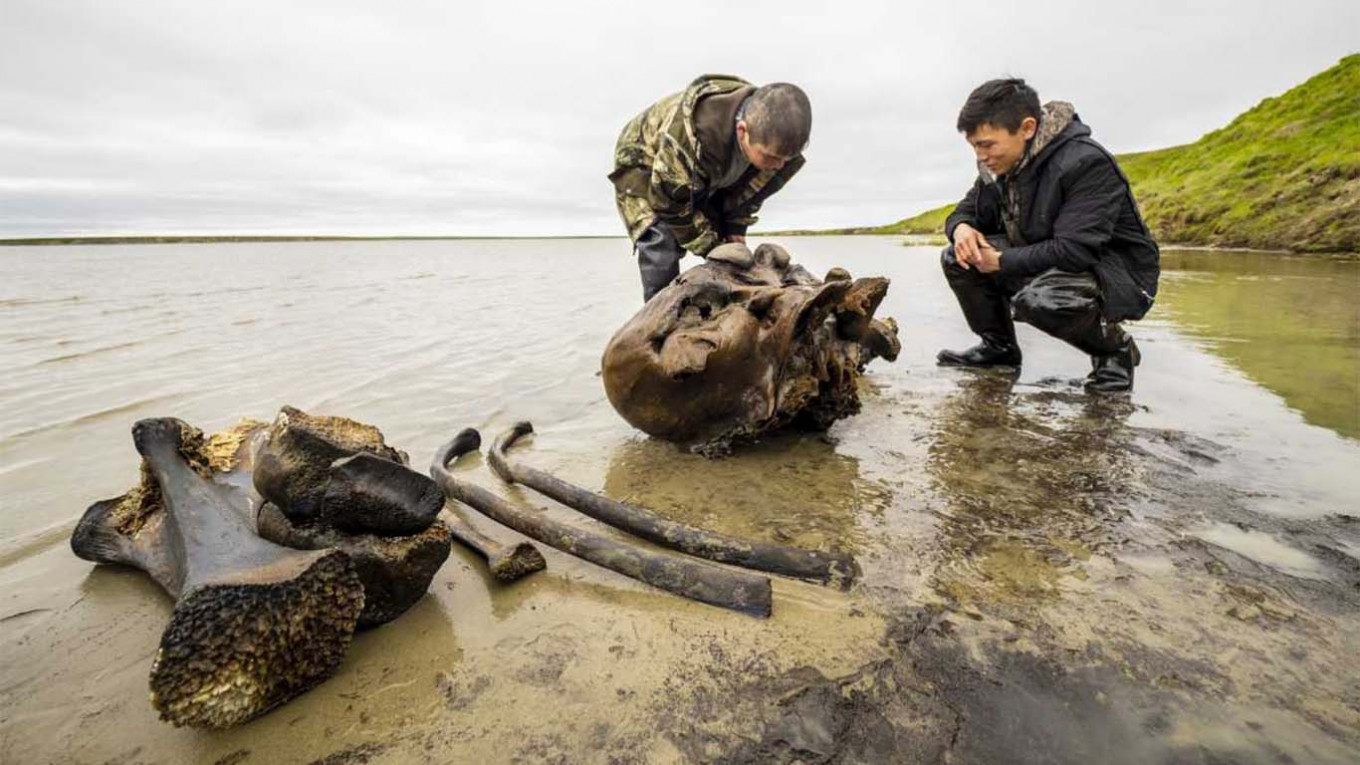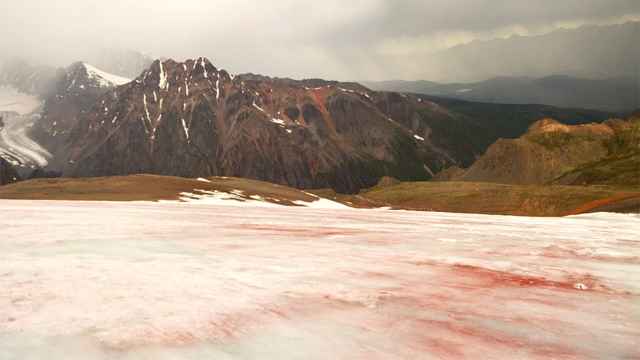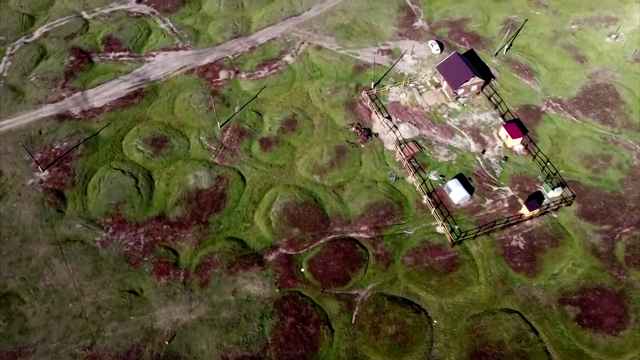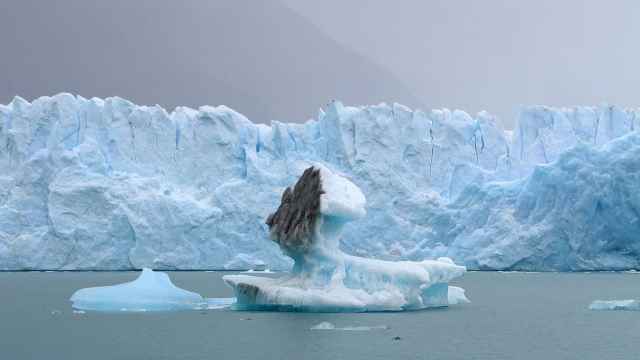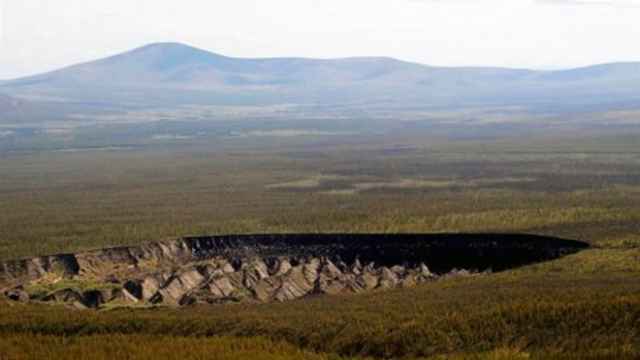Reindeer herders in northern Siberia have found a well-preserved wooly mammoth skeleton as climate change thaws the vast region’s permafrost layer at a rapid pace.
The surprise archaeological find came during a historically hot summer in Siberia and the Russian Arctic, which is one of the world’s fastest-warming regions.
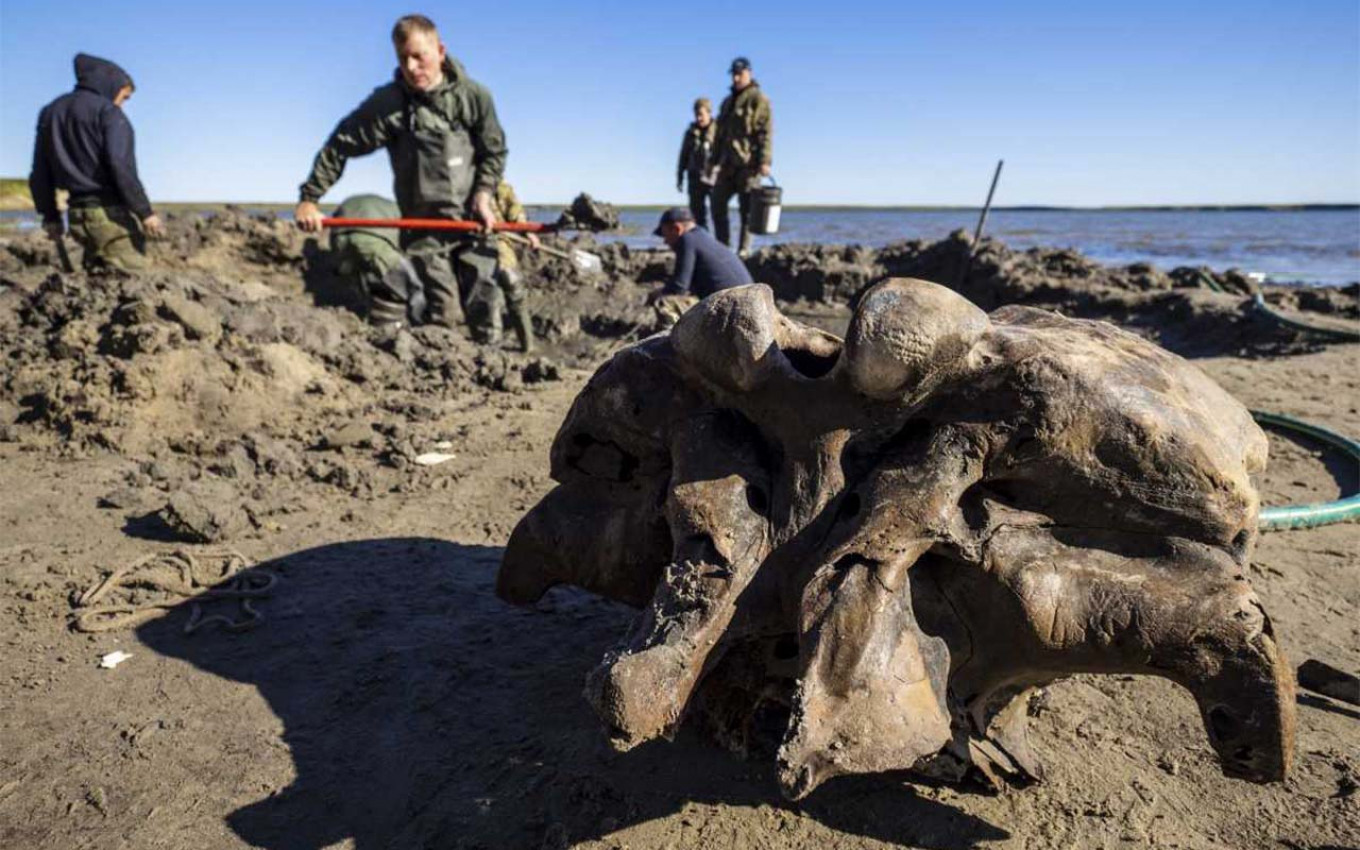
The skeleton, which was discovered along the shore of Pechevalavato Lake in the Yamalo-Nenets autonomous district last week, includes part of the animal's skull, its lower jaw, several ribs and a foot fragment with some soft tissue still intact, the state-run TASS news agency reported.
Archaeologists uncovered several other large bones and fragments and are now working to find more remnants of the skeleton that may still be buried.
"The lake bottom mud may hold the rest of the mammoth skeleton," said Dmitry Frolov, the head of the Research Center for Arctic Studies.
"It is necessary to record the exact location of the remains for further studies," he added.
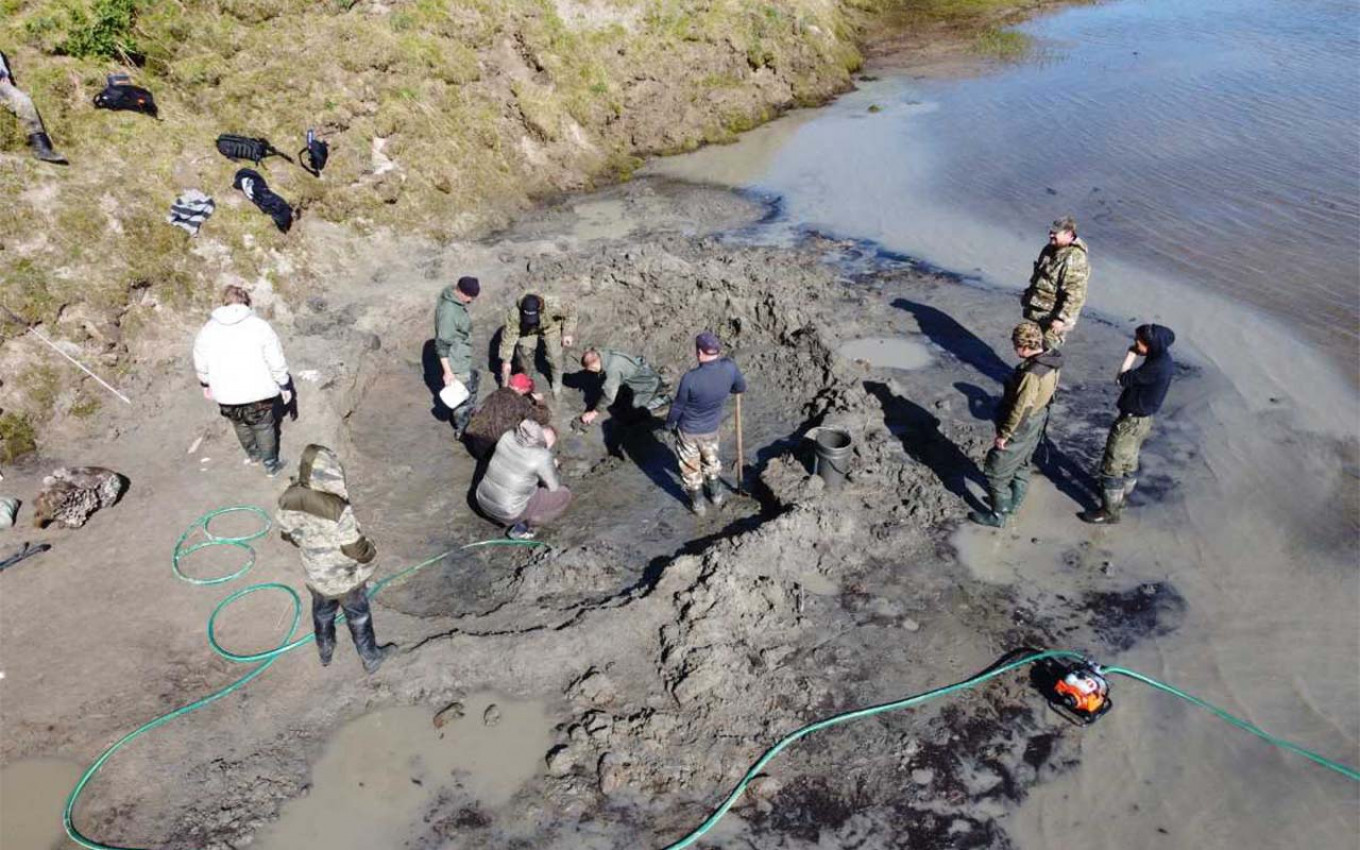
It’s relatively rare for scientists to find a complete mammoth skeleton, said Yevgeniya Khozyainova of the Shemanovsky Institute in the far-northern town of Salekhard in televised remarks.
Wooly mammoths, which roamed across northern Eurasia and North America, are believed to have died out 10,000 years ago. Several mammoth skeletons have been discovered in Siberia.
Russian and Korean scientists in 2015 established a lab in the Siberian republic of Sakha dedicated to researching ways to clone the elephant-sized animals.
Temperatures above the Arctic Circle have soared to nearly 40 degrees Celsius this summer as climate scientists warn that melting permafrost could release mass amounts of greenhouse gases into the atmosphere.
A Message from The Moscow Times:
Dear readers,
We are facing unprecedented challenges. Russia's Prosecutor General's Office has designated The Moscow Times as an "undesirable" organization, criminalizing our work and putting our staff at risk of prosecution. This follows our earlier unjust labeling as a "foreign agent."
These actions are direct attempts to silence independent journalism in Russia. The authorities claim our work "discredits the decisions of the Russian leadership." We see things differently: we strive to provide accurate, unbiased reporting on Russia.
We, the journalists of The Moscow Times, refuse to be silenced. But to continue our work, we need your help.
Your support, no matter how small, makes a world of difference. If you can, please support us monthly starting from just $2. It's quick to set up, and every contribution makes a significant impact.
By supporting The Moscow Times, you're defending open, independent journalism in the face of repression. Thank you for standing with us.
Remind me later.


